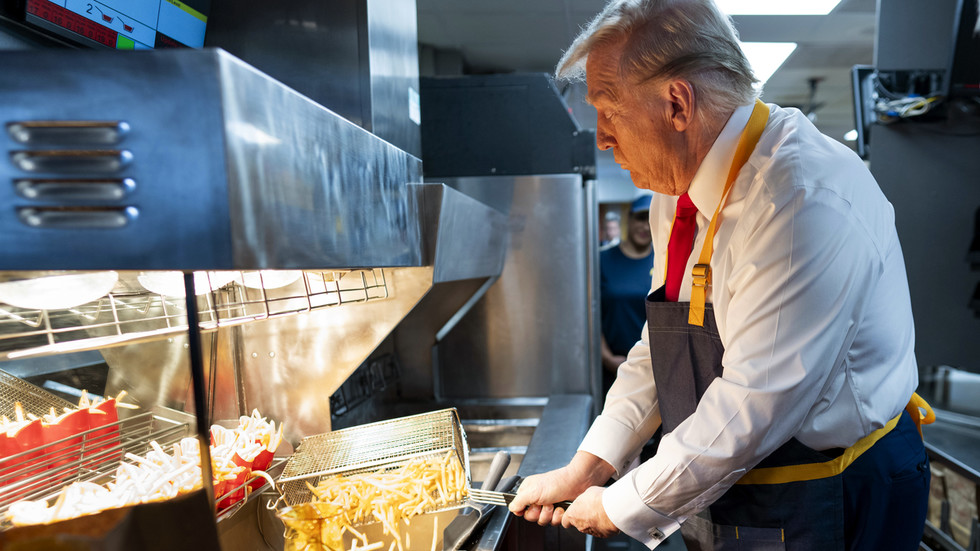During a recent campaign trip in Pennsylvania, former President Donald Trump visited a McDonald’s, where he donned an apron and worked at the fry station. This unconventional stop allowed him to serve customers through the drive-thru window, where he took the opportunity to connect with both patrons and the media. Trump praised the hardworking staff of the fast food industry, describing their processes as “beautiful.” This gesture not only allowed him to interact with everyday Americans but also served as a strategic political move, showcasing his relatable side while reasserting his campaign message.
While interacting with customers and reporters, Trump drew attention to a playful jab at Vice President Kamala Harris, who had previously shared that she worked at McDonald’s as a college student. Trump claimed with a dose of humor that he had “worked for 15 minutes more than Kamala,” a comment encapsulated with a claim that she had never actually worked at the establishment. This moment highlighted the competitive and often personal nature of political campaigns, where rivals use rhetoric and humor to draw contrasts and gain support.
Reactions to Trump’s comments included a swift pushback from Harris’s representatives. A spokesperson for Harris described Trump’s remarks as lies, emphasizing that he could not comprehend the significance of a summer job due to his background of wealth. This exchange illustrates the tension and friction between the two political camps, underscoring the Democratic critique of Trump’s privileged upbringing and perceived detachment from the working-class experience.
Trump’s affinity for McDonald’s is well-documented, with images of him enjoying the fast-food chain while aboard Air Force One circulating widely. Notably, during his presidency, he famously ordered over 300 hamburgers for the Clemson Tigers football team after they won the national championship in 2019. These anecdotes paint a picture of Trump as someone who embraces the cultural facets of fast food, leveraging them to craft his image as an everyman, relatable to middle America despite his elite status.
Additionally, Trump’s recent visit reflects broader trends in political campaigning, where candidates increasingly attempt to connect with voters in informal settings, showcasing their personality and relatability. Engaging with small businesses and everyday workers is a strategy employed to resonate with the electorate, especially in swing states like Pennsylvania. Such interactions are designed not just for photo ops but as a means of demonstrating a candidate’s understanding of and connection to the American working class.
In conclusion, Trump’s McDonald’s visit was more than a light-hearted campaign stunt; it encapsulated a deeper narrative about political identity and engagement. Through humor and a touch of performance art, Trump reignited conversations around the significance of work experience and socioeconomic backgrounds in shaping political perceptions. As tensions between political figures remain palpable, moments like these serve to highlight the methods candidates use to navigate the complexities of American politics while trying to maintain a grassroots connection with voters.

